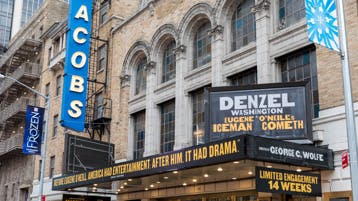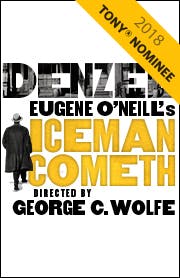This show is closed.
Tickets at Bernard B. Jacobs Theatre
The Bernard B. Jacobs was built by the Shuberts as The Royal Theatre in 1927. It briefly changed hands in the 1930s, when it was used for radio theater. The space was re-acquired by the Shuberts in 1940.
In 2005, it was officially renamed to honor the Shubert Organization's former president Bernard B. Jacobs.
How to Get Discounts at the Box Office
There are no active discounts for The Outsiders. However, you may visit their box office in person to purchase tickets and save fees. As always, if you do not have flexibility we advise making a purchase in advance to secure your tickets.

The Iceman Cometh Discount Tickets
About The Iceman Cometh on Broadway
Previews
Opening
Closing
Story for The Iceman Cometh
Five-time Tony winner George C. Wolfe directs this strictly limited engagement.
Critics’ Reviews for The Iceman Cometh
"The Iceman Cometh ranks among the theater’s finest works. One final salute to a notable drama by a man who writes with the heart and wonder of a poet"
"Eugene O’Neill did nothing less than re-invent—or rather invent—the American theater"
"Before Eugene O’Neill, America had entertainment; after him, it had drama"
